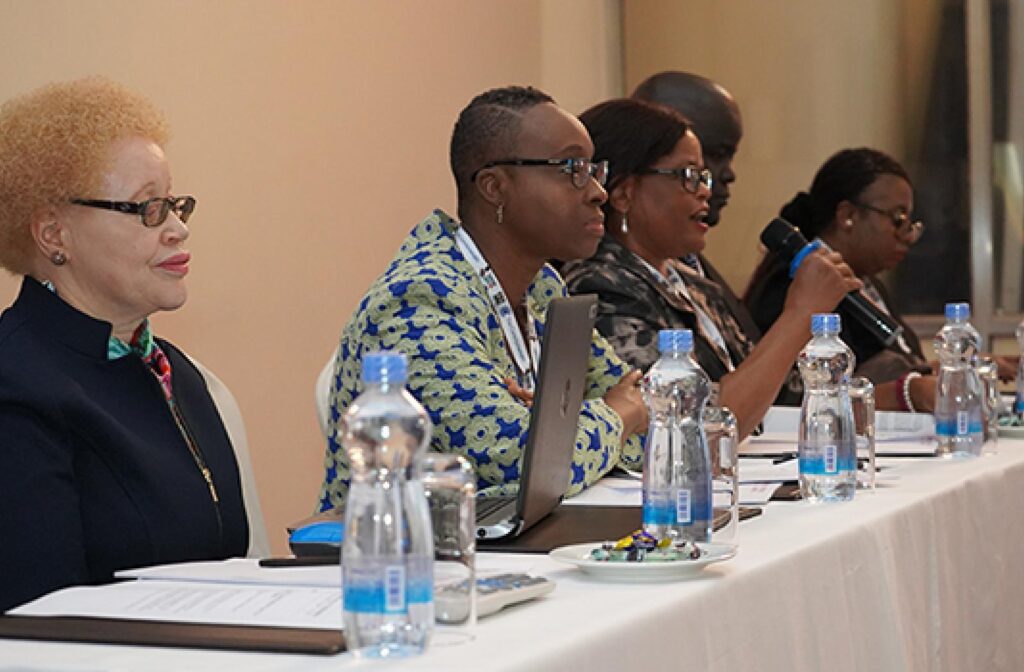United Kingdom (Commonwealth Union)_ Partners of the Global Strategy for Equality in Law for Women and Girls by 2030: A Multi-stakeholder Strategy for Accelerated Action have issued a joint statement on International Women’s Day, highlighting the need to advance gender equality in a digital era. Access to innovative technology, including simple devices such as mobile phones, is crucial for women and girls, as well as men and boys, to be aware of their rights. The COVID-19 pandemic has emphasized the importance of closing the gender digital gap, as it is a prerequisite for women to access justice and other legal services. This underscores the urgent need for accelerated action through a multi-stakeholder strategy.
There is an urgent need for legal reform as more than 2.5 billion women and girls worldwide are living in an environment of discrimination or without adequate protection. In 2019, a multi-stakeholder group led by UN Women established the Equality in Law for Women and Girls by 2030 strategy, aimed at accelerating the repeal of these inequalities, which deny women and girls equal rights, violate their trust in society, and perpetuate gender discrimination. As we approach the four-year mark, it is a chance to recommit to supporting women’s fundamental human rights and closing these remaining gender gaps once and for all.

Discriminatory laws impact the rights of women and girls as well as impede growth across all sectors, especially the rapid advancements in innovation and technology. A comprehensive and targeted approach to legal reform, addressing issues such as economic empowerment, the minimum age of marriage, nationality rights, violence against women, political involvement, and family and personal status laws, would have far-reaching effects on society as a whole.
Many countries are already acting on this necessity. Since 2019, Rwanda has passed bills protecting the freedom of widows to remarry after the death of their spouses. Pakistan has abolished restrictions on women’s nighttime employment. Brazil enacted measures to prevent, punish, and eradicate political violence against women. Peru enacted new legislative regulations to safeguard the rights of domestic workers. Liberia has codified women’s equal ability to confer nationality on their children and husbands. Morocco mandated female representation on the boards of publicly traded firms. In order to guarantee the equitable allocation of parental obligations, Ukraine also implemented paid paternity leave. These changes have begun, among other things, to reverse decades of injustice and meet the legal requirements of millions of people.

Regardless of the huge problems women face around the globe, these committed stakeholders must continue strong in their resolve to pursue gender-responsive law reform in at least 100 nations utilizing technology and other means. The world cannot wait another 286 years to eliminate these imbalances. Its time to recognize the historic accomplishments made by gender equality advocates throughout the world and recommit to making equality a reality. Without the meaningful and equitable involvement of women, the Sustainable Development Goals cannot be fulfilled. This begins with legal equality for women and girls worldwide. Additionally, ensuring that every woman and girl reaches her full potential necessitates radical reforms to laws, policies, and constitutions, as well as a comprehensive plan for their effective execution, which should incorporate technological innovation. This collective initiative also requires the participation of nations, regional and interregional entities, civil society organizations, international organizations, and United Nations agencies. Since 1975, March 8 has been celebrated annually as International Women’s Day to honor women’s social, economic, cultural, and political achievements worldwide. The day is commemorated to emphasize the importance of the fight against gender prejudices and to draw attention to issues like gender equality, reproductive rights, and violence and abuse against women. It has become a platform for raising awareness and catalyzing social change.









